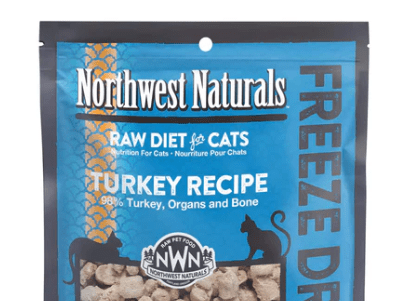A batch of cat food sold nationwide is being recalled following the death of an Oregon house cat, officials in the northwest state said.
The recall was issued on Christmas Eve, and the cause of the cat’s dead was determined to be bird flu contracted from a batch of Northwest Naturals brand two-pound Feline Turkey Recipe raw frozen pet food, the Oregon Department of Agriculture (ODA) said.
The Portland-based company immediately issued a voluntary recall of the single batch. The product comes in two-pound plastic bags and carries “best if used by” dates of May 21, 2026, and June 23, 2026. It was sold nationwide via distributors in Arizona, California, Colorado, Florida, Georgia, Illinois, Maryland, Michigan, Minnesota, Pennsylvania, Rhode Island, and Washington, plus British Columbia, Canada, the company said.
Customers who bought the pet food should throw it away immediately and seek a refund from their point of purchase, the company said, echoed by state agriculture officials.
“We are confident that this cat contracted H5N1 by eating the Northwest Naturals raw and frozen pet food,” ODA State Veterinarian Dr. Ryan Scholz said in a statement. “This cat was strictly an indoor cat; it was not exposed to the virus in its environment, and results from the genome sequencing confirmed that the virus recovered from the raw pet food and infected cat were exact matches to each other.”
The testing was conducted by the U.S. Department of Agriculture’s (USDA) National Veterinary Services Laboratories and the Oregon Veterinary Diagnostic Laboratory at Oregon State University, agriculture officials said. It revealed contamination with the H5N1 strain of the Highly Pathogenic Avian Influenza (HPAI) virus, the bird flu variant that is racing through the wild bird population, poultry farms, dairy farms and zoos.
The virus has also jumped to humans, with 65 cases documented by the U.S. Centers for Disease Control and Prevention so far. Most of those are through poultry workers exposed to infected animals, the CDC says, and the risk to the wider human population remains low.
The people living with the infected cat were being monitored, Oregon health officials said, but had not shown signs of illness.
With News Wire Services








